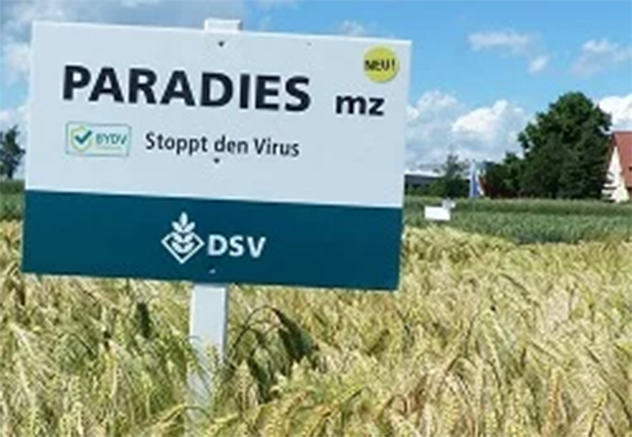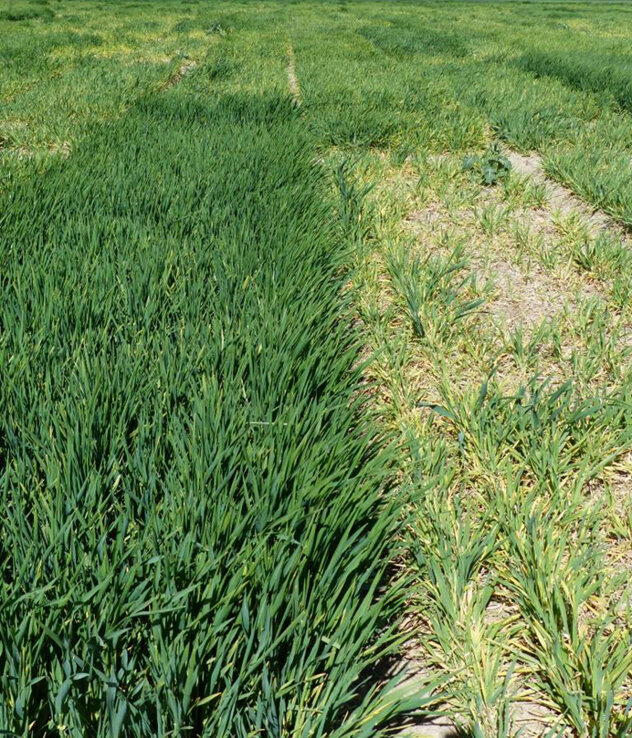Control hitherto only limited and possible at great cost

New in Germany: PARADIES, resistant multi-rowed (mr) winter barley
PARADIES is the first approved variety of multi-rowed winter barley with resistance to barley yellow dwarf virus (BYDV resistance) in Germany. It has been developed in the DSV cereal breeding programme in Leutewitz. PARADIES provides a risk-free, cost-effective means of cultivating winter barley with earlier sowing dates and mild autumns when the aphids are on the wing.
"Breeding for resistance is the basis for plant protection strategies of the future," is the opinion of Dr. Jens Vaupel, the DSV breeder. "It contributes to ensuring sustainable, environmentally-friendly, consumer-friendly plant production. PARADIES is merely the starting point for an entire portfolio of resistant varieties, which safeguard yields. There are other solutions in the pipe line, such as a variety with a combination of BYDV and yellow mosaic virus resistance.
DSV claims that PARADIES is characterised at the medium growth stage by average stability and ripening. It is one of the healthiest varieties of winter barley. With APS 3 for rust caused by Puccinia simplex it has also been assigned the best classification in the multi-rowed segment and also exhibits a high resistance to mildew (APS 3). It has been not been assigned any official classification for Ramularia and undefined leaf spot; however, plant appraisals indicate that there is also good resistance to these problems. In terms of yield PARADIES demonstrates high untreated yields, which once more emphasises its good resistance to disease. As a grain density type it also exhibits higher numbers of grains per ear for average thousand-grain weights (TGW). The yield potential for treated PARADIES is medium to high.
The variety is also available in Austria.
